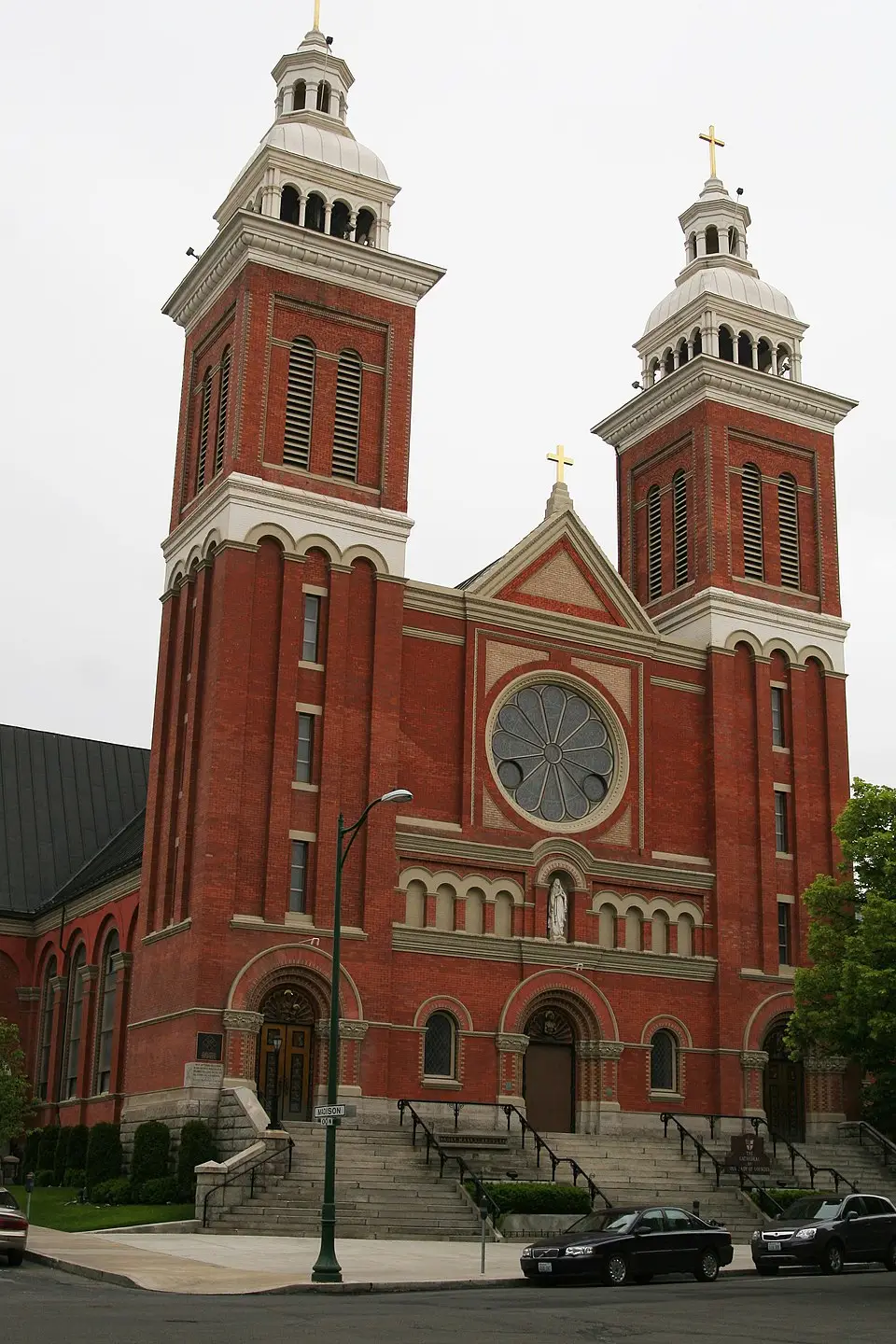Photo: Cathedral of Our Lady of Lourdes in Spokane; via Wikipedia.
A federal judge has temporarily blocked Washington state from enforcing a new law that would have required Catholic priests to report child abuse or neglect disclosed during confession, Washington State Standard reported Friday.
The ruling, issued Friday by U.S. District Court Chief Judge David Estudillo, grants a preliminary injunction to three Catholic bishops who argued that the law violates their First Amendment rights.
The challenged provision was part of Senate Bill 5375, a law scheduled to take effect on July 27. While the law added clergy to the list of mandated reporters—including teachers, nurses, social workers, and psychologists—Estudillo determined that compelling priests to break the sacramental seal of confession places them in the untenable position of choosing between their religious obligations and state law. In his 25-page opinion, Estudillo wrote that “there is no question that SB 5375 burdens Plaintiffs’ free exercise of religion.”
The ruling means that priests under the direction of the bishops of Seattle, Yakima, and Spokane—who filed the lawsuit—will not be legally obligated to report abuse they learn of through confession. The exemption applies only to the confessional setting; outside of that, clergy are still subject to mandatory reporting requirements. The state has emphasized that the injunction is narrowly tailored and does not eliminate those broader obligations.
Legal teams representing the bishops praised the decision as a victory for religious liberty. A plaintiff’s attorney said the court’s ruling “safeguarded the basic principle that people of all faiths should be free to practice their beliefs without government interference.” Jean Hill of the Washington State Catholic Conference also welcomed the ruling, saying it protects the “sacred space” of confession and religious freedom for people of all faiths.
However, the law’s original sponsor, Washington Governor Bob Ferguson, expressed disappointment in the lawsuit. A practicing Catholic himself, Ferguson said the law’s intent was to close a gap in the state’s mandatory reporting system and prevent abusers from escaping accountability. “I was disappointed my church was suing to protect individuals who abuse kids,” he said.
The new statute defines “member of the clergy” broadly to include ministers, priests, rabbis, imams, elders, or similar religious leaders. Violating the law could carry penalties of up to 364 days in jail, a $5,000 fine, and civil liability. The law would have required clergy to report suspected abuse even when the information was obtained in confidence—except under the scope of this new ruling.
The legal battle also drew attention to inconsistencies in how Washington treats different professions. The bishops’ attorneys pointed to House Bill 1171, which also takes effect July 27, and exempts university-employed attorneys and their subordinates from mandatory reporting when the information is part of client representation. Judge Estudillo cited this as a key flaw in the state’s argument, noting that both bills involve the same governmental interest—protecting children—yet treat religious and secular confidentiality differently.
“The government interest at issue in both statutes is the same,” Estudillo wrote. “Nevertheless, one law eliminates the privilege for clergy while the other expands the privileges available to secular professionals.”
Estudillo concluded that Washington had not demonstrated a compelling enough reason to single out the confessional while exempting other confidential relationships. His ruling likely foreshadows broader constitutional challenges to similar legislation in other states.
In a related case, the U.S. Department of Justice has been granted permission to intervene in support of the bishops, while another legal challenge—brought by the Orthodox Church of America and other religious groups—is pending in the Eastern District of Washington.
If you or someone you love experienced sexual abuse by a member of the Catholic clergy or Church staff, you may have legal options—even if the abuse happened years ago. Visit our Catholic Church Sexual Abuse Lawsuit Guide to learn more about your rights, how new laws may affect your case, and how you may connect with experienced attorneys who can help you pursue justice. Or, if you’re ready, fill out the brief, confidential form below for a free case evaluation.




